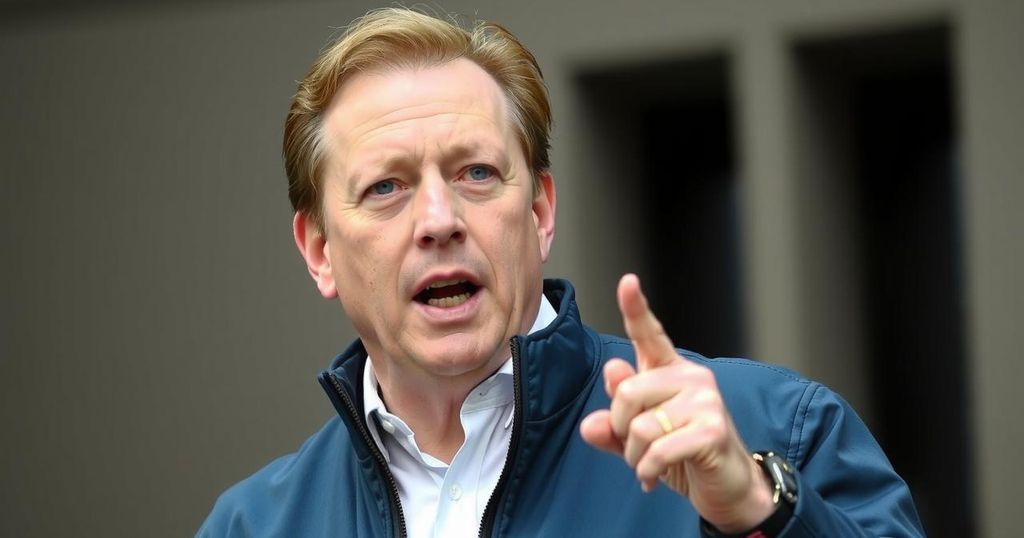Elon Musk’s Controversial Support for Germany’s AfD Party
Elon Musk recently voiced his support for Germany’s far-right AfD party in an op-ed, describing it as the “last spark of hope for the country.” Musk’s comments, which praised the party’s economic policies and dismissed its extremist label, prompted significant backlash from German political figures and media outlets. The op-ed’s publication has raised questions about foreign influence on elections and the responsibilities of journalism.
In an op-ed published by Welt am Sonntag, Elon Musk, the renowned US technology magnate, expressed his support for Germany’s far-right party, the Alternative for Germany (AfD). Musk declared the AfD the “last spark of hope for the country,” which he believes is nearing economic and cultural collapse. He criticized the party’s detractors, asserting that the label of extremism was misleading, especially due to the party’s leader, Alice Weidel, having a same-sex partner from Sri Lanka. Despite facing backlash from German political figures and media, Musk lauded the AfD’s policies on regulation, taxes, and market deregulation. The publication of Musk’s piece provoked protests among the editorial staff of Welt and led to the resignation of an editor.
The article highlights Elon Musk’s recent political stance in Germany, particularly his endorsement of the AfD amidst an electoral season. This party, known for its nationalist and populist positions, has gained significant traction, currently polling at around 20%. The response to Musk’s op-ed underscores a broader concern regarding foreign influence in domestic elections and the appropriation of media platforms for political advocacy. His comments not only stoke controversy over the AfD’s extremist label but also raise questions about journalistic integrity in politically charged times. The discourse surrounding free speech principles in Germany is also pivotal. While the German constitution guarantees freedom of expression and press, the implications of external endorsements in electoral processes are often contentious. Journalists and political analysts have expressed concerns over Musk’s motives and the potential normalization of far-right sentiments in Germany. Additionally, Musk’s financial interests, including the prospects of his Tesla plant in Germany, may play a role in his support for policies advocated by the AfD that promote deregulation and tax reductions.
Elon Musk’s endorsement of the AfD has ignited significant controversy, raising vital questions about foreign influence in German elections and the role of the media in this context. As the AfD continues to gain popularity, Musk’s commentary draws attention to the party’s appeal to some voters amidst fears of economic instability. The reaction from various political factions illustrates the delicate balance of opinion in Germany regarding press freedom and its intersection with electoral processes.
Original Source: www.dw.com




Post Comment